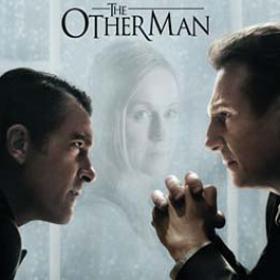The Other Man

2/5
At the center of Richard Eyre’s adaptation of The Other Man, a short story from author Bernhard Schlink, infidelity becomes the star player as it effortlessly combines conflicting feelings of love and passion with those of hurt and deception. Eyre’s aim is to reveal the struggle between hatred and love as it pertains to one person, in this case through the eyes of a betrayed husband. The audience is shown the importance of a single moment and how such clarity can inevitably change every aspect of reality.
As a way to learn the truth of these circumstances, one man sets out on a rampage to find the truth about his wife’s past. As the details continue to unfold, Peter is forced to face the reality of his own existence, which in turn tests the true essence of his being. The Other Man is a story about the unexpected aspects of life and one that attacks the notion of humanity and challenges views of morality. Through the discovery of an extramarital affair, Peter is forced to decide if he can live with this newfound knowledge or if his former happiness is gone forever.
Richard Eyre directs a film that tests the viewer’s sympathy as we begin to uncover the details behind a wife’s hidden romance. As a shoe designer, Lisa, (Laura Linney) is accustomed to luxury and often travels through Europe in a quest for artistic inspiration. In one of many flashbacks we are introduced Lisa’s younger self in red heals as she meets a mysterious Ralph (Antonio Banderas), who inevitably becomes the other man. Ralph allows Lisa the freedom of youth and becomes the key to her sought after decadence. In an early scene, husband and wife of almost twenty-five years discuss the possibility of potential sexual encounters, which immediately opens the viewer to the idea of a possible indiscretion. Although Peter is appropriately shocked by this question, he effortlessly explains his love and loyalty to his beautiful wife. This short conversation sets the stage, catapulting a journey to uncover the truth behind such a selfish accusation.
As the film begins to unfold, we gradually unearth the degree to which a discussion about infidelity affects a seemingly genuine marriage. When conversation leads to discovery, Peter begins a rampage whereby he becomes determined to find out the most incredible details of his wife’s affair. Instead of reacting with an initial intent to kill, Peter in turn slay his own spirit by repeatedly viewing illicit photos and reading the love emails of Lisa and Ralph. Eventually Peter takes his revenge by punishing the other man by answering letters and posing as the red healed women he loved so dearly. Through the interactions, we begin to realize how each of these men fell at the heart of a woman who mysteriously fails to exist.
The Other Man makes a faulty attempt to create a world in which two men come together over a single woman’s love. This typically shining group of actors fails to deliver the necessary depth to convey a story containing so many conflicting emotions. The contrasts between passion and betrayal become blurred, as the actors rarely seem to believe the truths they are meant to address on the screen. Despite the context of heartbreak, due to the director’s failure to develop any character thoroughly we are left with a void. Each time we are presented with a new twist of former fate or a character detail, the film again reverts back to Peter and his less then successful attempts at revenge. Every effort to explore the details of an individual is almost immediately halted by the continuation of a story we already know. Since Eyre does in fact incorporate a surprising use of flashback, the audience is able to glance into Lisa’s alternate existence. Despite all efforts, come the conclusions of the film the viewer is unfortunately left unaffected, unsympathetic, and in disbelief of radically pointless film.
Starring: Liam Neeson, Laura Linney, Romola Gerai, Antonio Banderas
Director: Richard Eyre
Runtime: 90 Minutes
Distributor: Image Entertainment
Rating: R
RELATED ARTICLES
Get the most-revealing celebrity conversations with the uInterview podcast!







Leave a comment